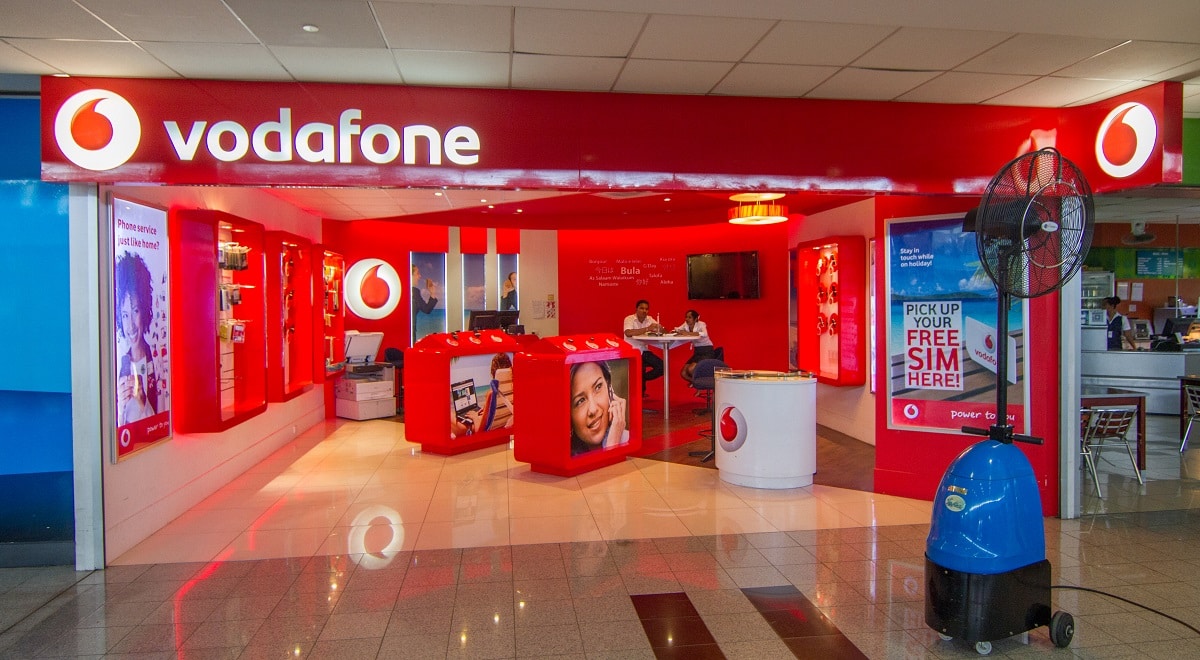
The Vodafone Assessment: An Overview And How To Prepare
Vodafone Group is a multinational telecommunications company that is based out of the United Kingdom. They have a vigorous screening process for applicants applying for a job with them. Part of this process is the Vodaphone Assessment. It involves one or more aptitude tests to ensure you have the right skill set and are the right fit for the role.
Read on to learn all about the Vodaphone assessment, what it includes, and how to prepare and pass.
Table of Contents
The Vodafone Hiring Process
To provide its clients with the best possible service, Vodafone looks to hire highly skilled individuals who have clearly demonstrated they are competent in the field for which they are applying. The company uses a uniform hiring process across all sectors and positions, making the recruitment process very well-defined and straightforward.
If you are thinking about seeking employment with Vodafone, you will need to apply for one of the company’s graduate programs.
- The first phase of the hiring process involves completing and submitting an initial online application. You will be asked to submit a cover letter, as well as a resume, for the position that you are applying for. The online application will prompt you to provide the necessary information, which makes completing the application both convenient and easy.
- The next phase will be online assessments, we will cover these in more detail below.
- Interview
Vodafone Assessments
After submitting an online application, which can only be submitted once a season (meaning you will not be able to apply for several different areas at the same time), the next phase in the process may include completing a series of psychometric tests.
The goal of these psychometric tests is to examine whether or not you have the skills that Vodafone deems necessary for the position that you are applying for. If you do not meet the required standards that have been established by the company, you will be removed from the pool of applicants.
The Vodafone assessments include tests that examine an applicant’s numerical reasoning skills, verbal reasoning skills, and inductive reasoning skills.
Different combinations of these examinations may be used and the combinations that are used are determined by the position that candidates are looking to fill. Vodafone uses a variety of test providers for these assessments, such as:
- The Watson Glaser Critical Thinking Appraisal
- SHL tests
- The Hogan Personality test
- The Korn/Terry Talent Q test
The company uses the information that is acquired via these tests to determine if candidates are well-suited for the area that they are seeking to fill. The tests determine if they would be a good fit for the Vodafone company. As such, it is important for applicants to do their best on the assessments.
It has been said that the assessments are the most challenging part of the application process. Therefore, if you are thinking about seeking employment with Vodafone, familiarizing yourself with these tests so that you’re well-informed and can increase your chances of success is important.
Below, you’ll find more information about each of the reasoning tests that Vodafone uses to screen employees, including what these tests are assessing, as well as what you can expect on each one.
Numerical Reasoning Assessments
Vodafone’s numerical reasoning assessments are psychometric examinations that are designed to screen job applicants to a norm that the company has established. The results of applicants who previously completed the tests are used to establish these norms.
Generally speaking, individuals who score lower than the 40th percentile on the numerical reasoning assessment are eliminated from the pool of applicants.
Numerous concepts are tested and tools are used to assess a candidate’s numerical reasoning skills. Numerical equations, graphs, and other kinds of numerical information are used to examine an applicant’s capacity to apply numerical concepts to business-related activities.
The numerical reasoning tests are time constrained, meaning that they do have to be completed within a specific time frame. There are a total of 18 questions, and typically, it takes about 25 minutes to complete the entire test.
Verbal Reasoning Assessment
Similar to the numerical reasoning test, the verbal reasoning test is used as a baseline that compares job applicants to an established norm. Also similar to the numerical reasoning test, the norm that applicants are being compared to is established by past test takers.
The examination features a short passage, which candidates must read. After reading the passage, applicants will then be asked a series of questions that are related to the information that was presented in the passage.
The questions are designed to assess a job seeker’s capacity to decipher facts from inferences. While a variety of question styles are used, often, “true, false, or cannot be determined with the information provided”-type questions are used.
The information acquired from this test is used to determine an applicant’s reading comprehension level, as well as his or her language skills.
Moreover, the information compiled from the test lets employers know whether or not individuals have the necessary logical aptitude for a position with Vodafone. There are 20 questions on the Vodafone verbal reasoning assessment, and it takes about 20 minutes to complete the test.
Diagrammatic Reasoning Assessment
Another kind of psychometric test, the diagrammatic reasoning test is used to assess a job applicant’s problem-solving capabilities.
Often, this test gauges a candidate’s skills using graphics. The diagrammatic reasoning assessment is important for positions that are related to finance, engineering, and management (just to name a few), in particular, as it requires job applicants to demonstrate their analysis, decision-making, critical thinking, and reasoning skills in high-stress environments, such as when they are pressed for time.
The diagrammatic reasoning test is comprised of 20 questions, and it takes about 20 to 25 minutes to complete all of the questions. Unlike other Vodafone assessments, diagrammatic tests do not require candidates to have previous knowledge to take the test.
Inductive Reasoning Assessment
Finally, Vodafone uses an inductive reasoning test. This assessment is designed to challenge an applicant’s lateral thinking skills, and it is similar to the diagrammatic test. Furthermore, the inductive reasoning tests are commonly used in the same way that logical reasoning assessments would be used.
Similar to diagrammatic tests, inductive reasoning assessments can also demonstrate a test taker’s problem-solving abilities. The information gathered via an inductive reasoning assessment highlight key skills that are vital in technical roles, such as engineering and information technology.
During an inductive reasoning assessment, test takers will be asked to analyze illustrations and different shapes. Candidates must also decipher the connection between shapes that aren’t connected superficially, as well as assess patterns between shapes and decide which shapes are not present.
The inductive reasoning tests tend to be fast-paced so as to challenge job seekers to solve problems and make decisions in situations where they will be under pressure.
Both the number of questions and the duration of the inductive reasoning tests vary. However, regardless of the number or the length, candidates do have to answer the questions as quickly as possible.
Tips To Help You Prepare For The Vodafone Assessments
In order to increase your chances of success, preparing for the Vodafone pre-employment screening tests is highly recommended. The best way to prepare includes completing a number of practice tests and sample questions.
Doing so will help you build up your confidence, make the assessments less intimidating, and help you feel more comfortable and confident in your abilities during the actual tests. If you do not practice in advance of the assessments, there is a chance that you will not be familiar with the nature of the tests. This can have a negative impact on their results.
If you are looking to prepare for the Vodafone assessment, check out Job Test Prep. This centre offers a wealth of information, including sample questions and tests that you can complete, to boost your confidence level and increase your chances of success.
Working at Vodaphone
The company was founded in 1981 and has since become one of the biggest telecommunications in the world. The company owns and operates networks in 22 countries, primarily in Europe, Africa, Asia, and Oceania, and partnered with networks in 48 additional countries.
The Vodafone Global Enterprise division offers telecommunications and IT services to corporate customers in 150 nations.
As one of the largest telecommunications companies in the world, Vodafone relies on a large employee base. It’s estimated that some 100,000 people are employed by the company around the world, and of those employees, approximately 17,000 are located in the United Kingdom.
There are ample employment opportunities with Vodafone. Sectors include technology, retail, customer service, business, and corporate, which means that the company requires a diverse set of employees with a wide range of expertise and backgrounds.
Because the company is always advancing its technologies, it’s the ideal place for those who have an aptitude for technology to work. Since Vodafone aims to constantly improve its communication infrastructure in the areas they serve, such as mobile phone, TV services, and fixed broadband, employment opportunities abound.
To prepare employees for success and to ensure that they are well-versed in the company’s operations and policies, Vodafone offers a graduate program for prospective applicants. This program offers a 2-year rotation in the area applicants specialize in.
It allows them to discover exactly what it is that they enjoy doing and what talents they possess.
At the time of writing, graduate programs with Vodafone were available in the following sectors:
- Finance
- B2B sales
- Human Relations
- Technology
- Digital operations
- External affairs
- Customer operations
Sarah is an accomplished educator, researcher and author in the field of testing and assessment. She has worked with various educational institutions and organisations to develop innovative evaluation methods and enhance student learning. Sarah has published numerous articles and books on assessment and learning. Her passion for promoting equity and fairness in the education system fuels her commitment to sharing insights and best practices with educators and policymakers around the world.





